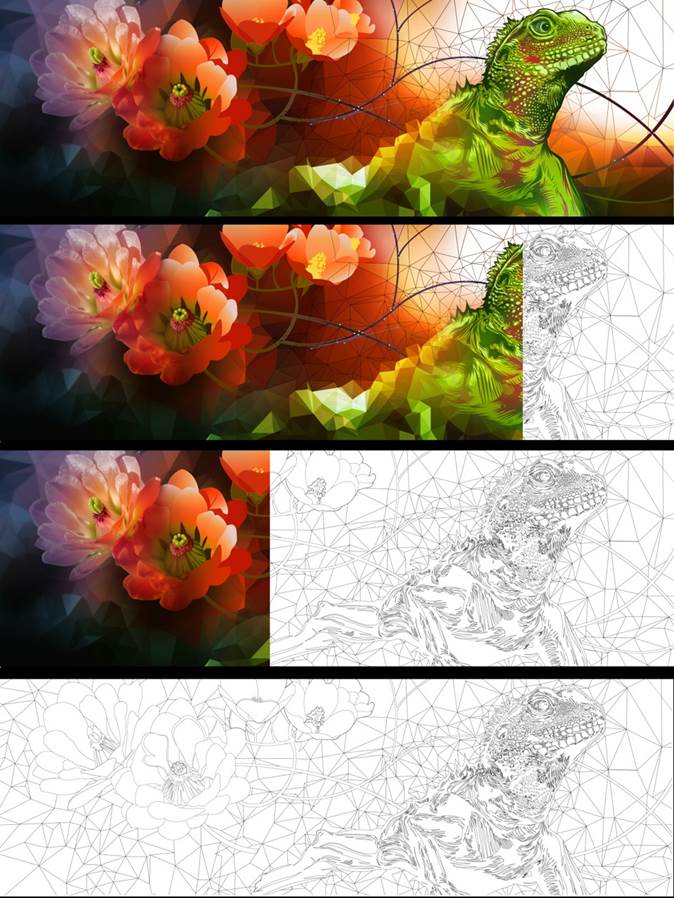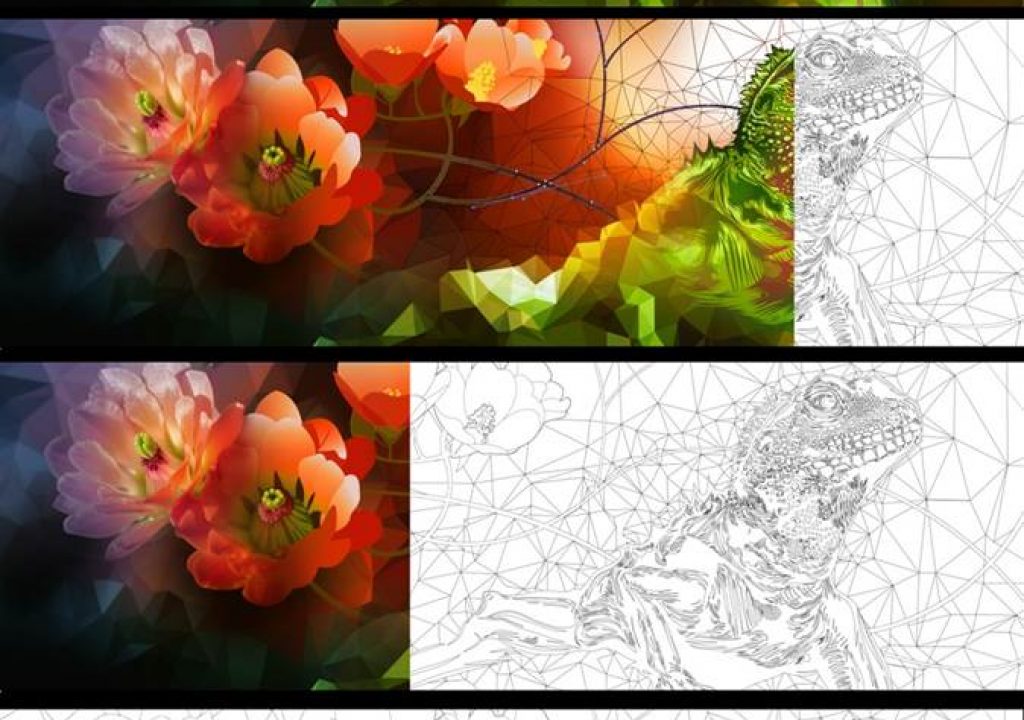
GPU acceleration in Illustrator CC specifically benefits the wide range of users working with 2D vector graphics, including graphic designers, illustrators and typographers creating media across web, print, mobile and more. While GPU acceleration is the norm in 3D content creation, those working in 2D have traditionally been restricted to driving all computing performance through the CPU. Now 2D artists and designers can experience fully interactive performance with even the most complex, high-resolution graphics.
This new Illustrator CC performance boost is based on an optimized NVIDIA technology called NV Path Rendering that is implemented as an extension to OpenGL, an open standard for graphics performance. Adobe and NVIDIA collaborated closely to weave this technology into Illustrator CC. Path rendering specifies a design as a sequence of resolution-independent outlines known as paths that can be filled or stroked. Unlike bitmap images, path rendered content can be arbitrarily zoomed and re-scaled without pixelated results. In the past, most path rendering has been performed by the CPU; however, in the same way nearly all 3D rendering is now performed by the GPU, applications based on path rendering are also beginning to migrate to the faster and more efficient GPU. Learn more about NV Path Rendering here.
New GPU-accelerated versions of key Adobe Creative Cloud video and imaging applications — including Adobe Premiere Pro CC, After Effects CC, SpeedGrade CC, Adobe Media Encoder CC, Adobe Anywhere, and Adobe Photoshop CC are also available. New features and improvements in these creative applications support NVIDIA GPU-driven tools to enable creative professionals to create more intuitively and perform faster. They include :
Adobe Premiere Pro CC
- NVIDIA GPU debayering for real-time RED camera media 4K playback. Before this new speed breakthrough, editors needing that kind of performance required an additional dedicated RED ROCKET card.
- Integration of the Master Clip Effects function with the Mercury Playback Engine, enabling GPU-accelerated effects to be applied to multiple sub-clips, speeding up the entire editing timeline management process.
- Feathered Masking to soften mask edges quickly and intuitively.
- Performance optimizations for the Mac providing up to 30% faster performance when upgraded with the NVIDIA CUDA driver(2).
Photoshop CC
- New Focus Mask feature for GPU-optimized automatic selection of the in-focus area of photos.
- Faster upsampling for high-quality image resolution improvements, now enabled for multiple GPUs.
- More GPU-accelerated Blur Gallery Motion Effects like Path Blur and Spin Blur.
Adobe Media Encoder CC
- Tight integration of Adobe Media Encoder CC with the Mercury Playback Engine for GPU-enabled rendering, automated image processing, and background project rendering.
Adobe Anywhere
- Integration of new Mercury Playback Engine GPU improvements in Adobe Anywhere, powered by NVIDIA Tesla-based platforms.
“We’re very excited about this technology,” said Greg Estes, VP Enterprise Marketing, NVIDIA. “By bringing GPU acceleration to Adobe Illustrator for the first time, as well as driving GPU support into even more Adobe video and imaging applications, we’re helping to make the creative process not only faster, but more intuitive and free-flowing.”
For more information on NVIDIA GPU acceleration of Adobe Creative Cloud applications, please visit www.nvidia.com/adobe
(1) Based on pre-release version of Illustrator CC with NVIDIA GPU acceleration in RGB mode, NVIDIA GeForce GTX 780 Ti, Intel Xeon E3-1240.
(2) Based on Premiere Pro CC running NVIDIA GPU-accelerated Mercury Playback Engine (MPE), NVIDIA Quadro K5000 for Mac, GPU-upgradeable MacPro, Intel Xeon W3680, OpenCL-accelerated MPE, NVIDIA CUDA-Accelerated MPE
About NVIDIA
Since 1993, NVIDIA (NASDAQ: NVDA) has pioneered the art and science of visual computing . The company's technologies are transforming a world of displays into a world of interactive discovery — for everyone from gamers to scientists, and consumers to enterprise customers. More information at http://nvidianews.nvidia.com and http://blogs.nvidia.com .

